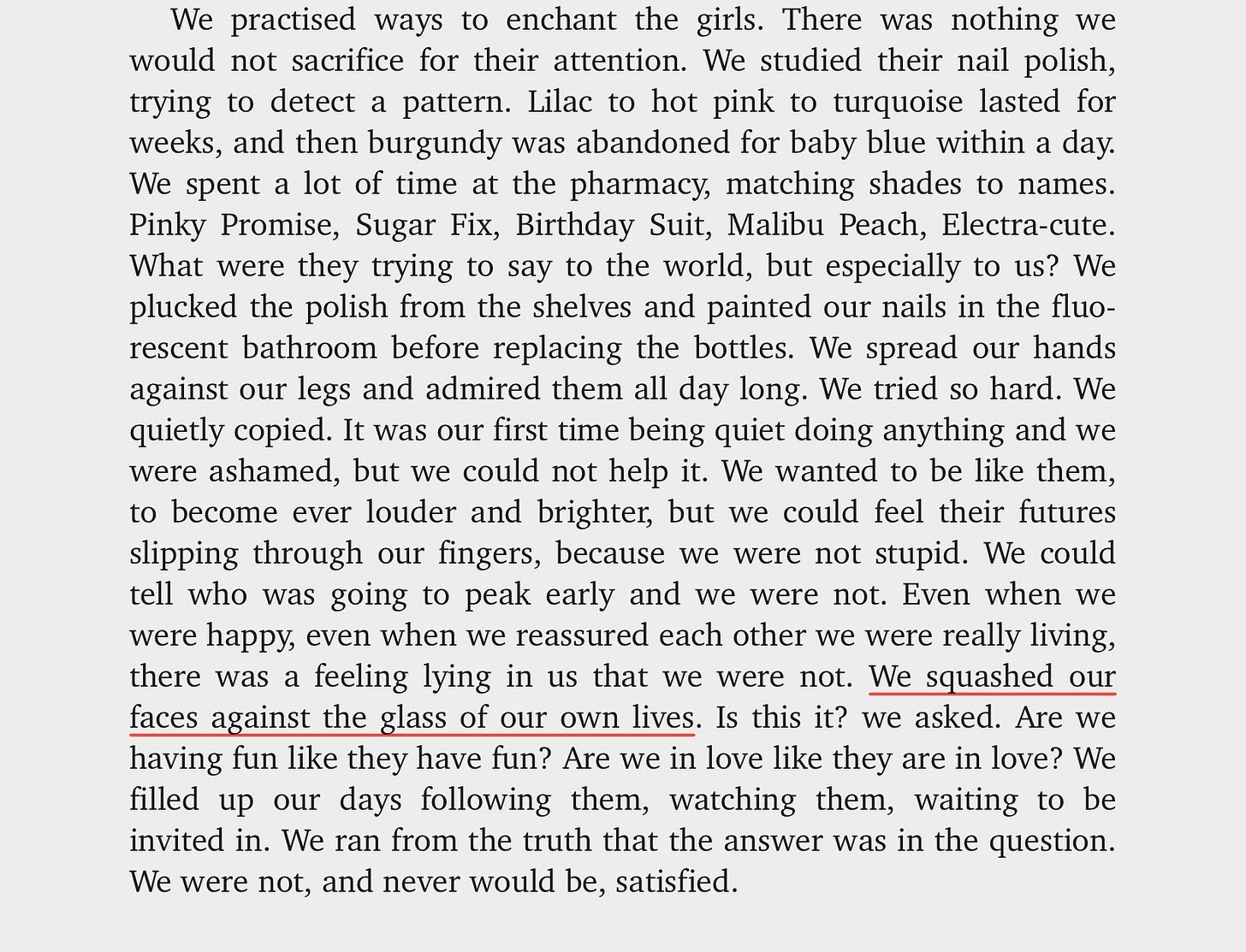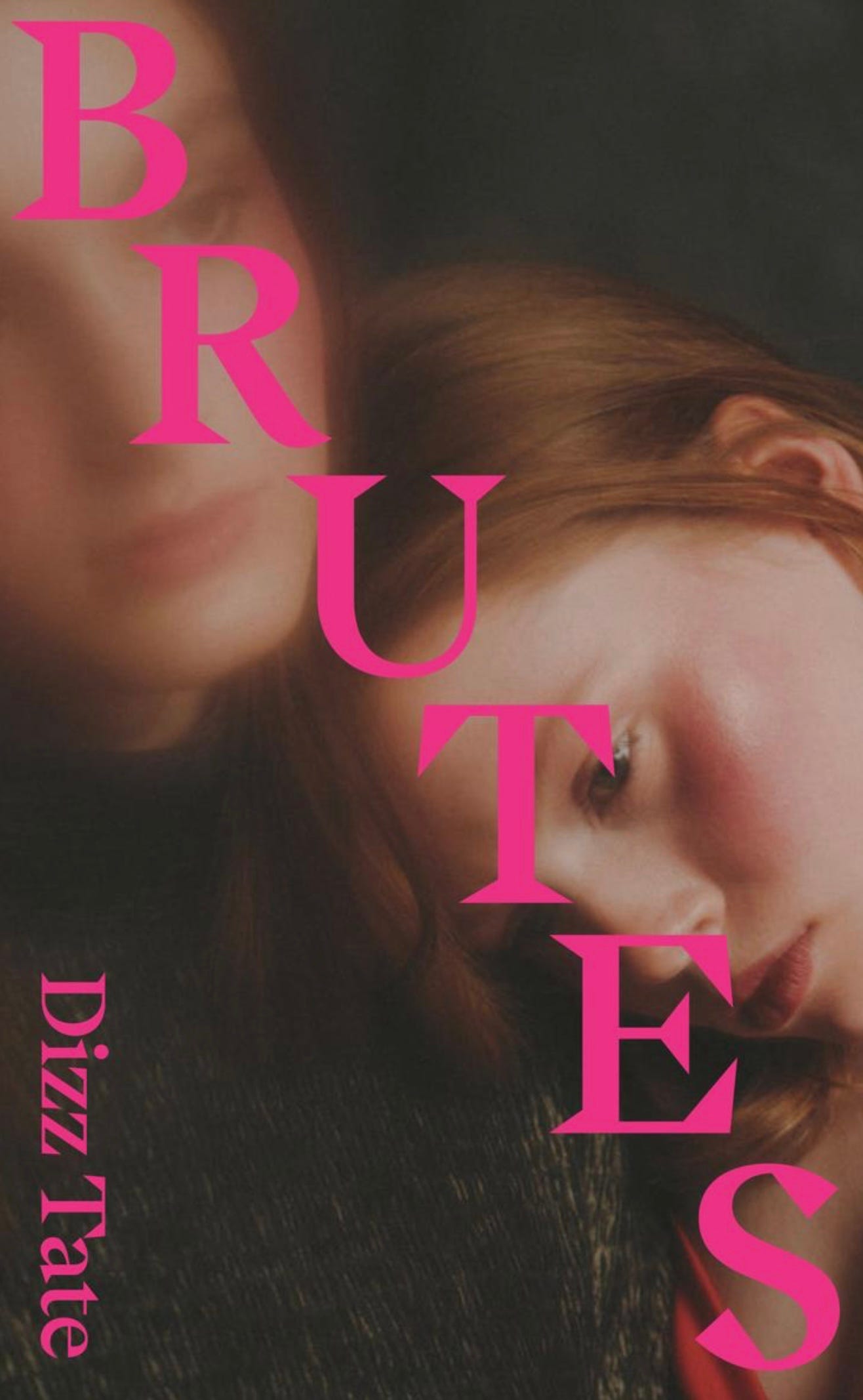The Brutality of Girlhood
A review of Dizz Tate's 'Brutes', thoughts on 'The Virgin Suicides' and the mystic truths only teenage girls know
“Obviously, Doctor ... you’ve never been a thirteen-year-old girl. ”
So goes Cecelia Lisbon’s infamous line. The dark sardonicism of the youngest sister in Jeffrey Eugenides The Virgin Suicides shapes up everything Dizz Tate’s debut novel Brutes sets out to explore. Pegged as a twist on Eugenides’ cult classic, Tate’s work invites us into a similar story of suburban mystery told through peripheral observations. This time, however, it is through the eyes and souls of a group of thirteen year old girls.
Whilst an enjoyable novel, Brutes has a few teething problems. It’s a bumpy journey, with some great highs and rocky absences. At times it gives too much, others too little. The pacing is inconsistent, sometimes dragging on and sometimes flying us past a moment that really could have been torn wide open. I left the novel wanting more from it, a little unsatisfied with the weighting of the fantastical and the mundane.
Tate’s novel especially suffers from its own publicity campaign, which leans so heavily into comparison with Eugenides masterpiece. When the marketing directs us so much to an influential source, it’s hard not to measure this work against it. You can’t help but recall the liquid smoothness of his dreamlike prose, his sharp and intense clarity. Every moment of stagnation and insularity in Brutes’s Florida draws the mind back to the crisis of banality and aridity thrumming in Eugenides’s Michigan. Even the micro dramas of Mia and Sammy’s life are undeniably Lisbon adjacent.
But Tate’s strength however comes in her expert perspective upon the lived experience of something Eugenides could only ever look out onto: girlhood. Tate’s use of the collective first pronoun is a deeply compelling means of capturing what Sarah Haque encapsulates in her essay on the experience of all girls schools - that ‘female love is love on acid […] tender, fierce and all-consuming’.
What Tate has been able to put on the page with such clarity is this crisis of girlhood. The fear of being alone seduces you into the uniformity of a group. You are safer in numbers, stronger together, less vulnerable. You are part of something, a ‘we’ instead of an ‘I’. And yet at the same time, within you is the pulsing desire to be seen. Whilst you hide in the oneness of a group, there is a desperation to be picked out as your own being, to be plucked from the masses and set up in the sky like a bright, new star. This paradoxical need to be within and to break free is safety and suffocation all at once. It is the entrapment of performance and the protection of a mask. As she puts it: ‘we feel brave when we pretend we are brave.’
When the girls of Falls Landing turn against each other with mean tricks and spiteful dares, it is only to test their love for one another. Their malice is born out of a double edged fear. They move as a group, with no leader and with no one victim. Everything is done collectively, binding themselves tighter and tighter to one another with a barbed wire affection that is as tender as it is cutting. Tate not only recognises that girlhood is cruel - she shows us why. The brutality of jagged teeth and sharp nails is born out of an aching vulnerability. These are weapons, a shield against a brutal, judgemental world that devours young girls.
When the narrative leaps forward into the adulthood of these girls, we see how scarring these years are. Hazel and Britney and Christian and all the others will always, always return to the ghosts of their formative years. Thirteen is the age of fleshiness. It is an age of moulding, shaping, learning, wanting, fearing, needing, hating, loving, screaming.
Whilst The Virgin Suicides boys adoration of the Lisbon sisters is an early warning of the dangers of manic-pixie-dream-girlification (or the original ‘no dont kill yourself ur so sexy’) the girls’ idolisation of Mia and Sammy is a more painful kind of longing. In these older girls, they see a chance at freedom. They pin their hopes and dreams upon their ideas of them as fully formed individuals. Untouchable. Mysterious. Cool. Through distant observation the girls place Mia and Sammy on pedestals, convinced of the lie that being older will eradicate their insecurities. And in allowing the girls to get close to their idols, Tate shatters that lie. They see the tan lines of Mia, the fragments of Sammy. The girls love sickness pales into a harrowing realisation of their own futures. Reading it is like reliving your own teenage revelations, for which Tate deserves ample applause.
I saw a tweet a while back that said something like: ‘men need at least three acid trips and one near death experience to figure out the things girls discovered in their bedrooms as teenagers’. Perhaps this is over mystifying girlhood or falling into the dangers of the divine feminine etc. But there is a certain understanding that comes with the introspectiveness and observations of being a teenage girl, and this book is a shining portrayal of that. Its commentary upon the complexity of mother-daughter relationships is raw and unfiltered - ‘We think of our mothers when we love them most which is always just after we hate them most’ . The text even seems to excavate motives for all our thirteen year old behaviours - the recklessness, the unkindness, the self-destruction - ‘We were in the mood where nothing was going to make us happy. Every happiness held its own ruin inside’.
Brutes is a shaky but deeply intriguing work, weakened by its collaged pastiche and technical inconsistencies. But its strengths are in its descriptive and emotive exploration of the bewildering psyche of girlhood. When the use of ‘we’ suddenly turns mid-paragraph into the singular ‘I’, the feeling of severance is like a minor whiplash. It’s so subtly powerful, so clever that it pisses me off that I didn’t think of it myself. This novel cements Tate as one to watch, and I’m excited to see where her grasp on the brutal and insightful can take her in her future work.





